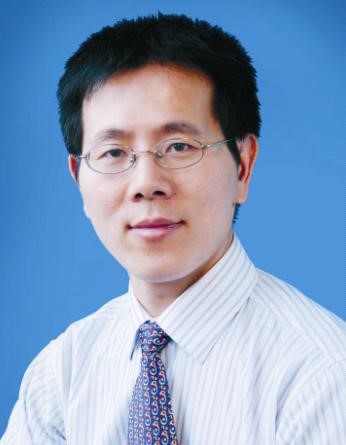Domain Decomposition Methods and Their Application for Scattering by Multiscale Objects Prof. Jun Hu School of Electronic Science and Engineering University of Electronic Science and Technology of China |
Abstract: Recently, domain decomposition methods (DDMs) have been payed much attentions on because of their ability for solving multiscale objects. The DDM is based on the philosophy of ‘divide and conquer’. It divides original problems into several closed sub-domains, and enforces transmission conditions (TCs) on touching faces to maintain the continuity of currents or fields across interfaces. Because of the non-conformal property of DDMs,each sub-domain can be meshed independently, and high mesh quality can be easily realized in sub-domains. In addition, the DDMs also provide an effective preconditioner and makes the system matrix for multi-scale problems well-posed.
In this talk, different DDMs for different objects are developed, for example, the JMCFIE-DDM and multi-trace EFIE/MFIE are developed for dielectric, different basis functions and different solvers for sub-domains are available in the framework of DDM. Finally, hybrid FEM-DDM and IE-DDM method is also developed, make very complicated object possible to solve on available workstation or servers.
Biography:

Jun Hu (M’06, SM’11) received the B.S., M.S., and Ph.D. degrees in electromagnetic field and microwave technique from the University of Electronic Science and Technology of China (UESTC), Chengdu, in 1995, 1998, and 2000, respectively.
During 2001, he was with the Center of Wireless Communication in the City University of Hong Kong, Kowloon, as a Research Assistant. During March to August in 2010, he was visiting scholar in the ElectroScience Laboratory of Department of ECE of the Ohio State University. He was Visiting Professor of City University of Hong Kong during Feb. to March in 2011. He is currently full Professor with the School of Electronic Science and Engineering of UESTC, IEEE senior member, member of Applied Computational Electromagnetics Society. Since September 2017,he has been vice president of the UESTC. He also served as chairman of student activities committee in IEEE Chengdu Section during 2010-2016, chairman of IEEE Chengdu AP/EMC Joint Chapter during 2014-2016. He is the author or co-author of over 300 technical papers, received 2004 best young scholar paper prize of Chinese Radio Propagation Society, and many best student papers awards. He was awarded as 2014 National Excellent Youth Fund by the NSFC, awarded as Chang Jing Scholar in 2016. His current research interests include integral equation methods in computational electromagnetics, electromagnetic scattering and radiation.